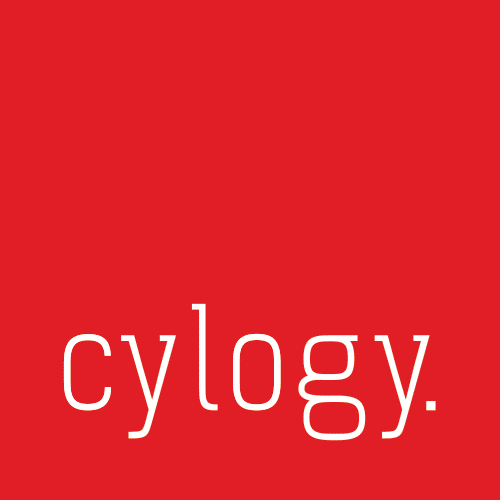How long has Sitecore been talking about moving to a SaaS model?
The Sitecore platform is always developing and expanding due to a continuing program of investment alongside the integration of various acquisitions; for example, Sitecore Content Hub was developed following the acquisition of Stylelabs. Over the years, this has seen Sitecore evolve from a Content Management System (CMS) into a full-blown digital marketing experience platform, and ensures it maintains its position as a leading DXP.
One of the most important evolutions is the emergence of a Software-as-a-Service (SaaS) model for the platform. This was first announced at the 2019 Sitecore Symposium, and reiterated at the 2020 conference where Sitecore CEO Steve Tzikakis promised a “pure SaaS” version of Sitecore; our observation that this will “represent a landmark change in the evolution of the Sitecore platform and will impact licensing, site management, upgrades, development processes, the partner network and more” still stands. The commitment to SaaS has also been reflected in the recent acquisitions by Sitecore, all of which have SaaS offerings, as well as elements of the platform like the Sitecore Content Hub being provided on an SaaS mode. A further acquisition of the AI-search platform Reflektion also supports the SaaS model.
Going down the SaaS route is a substantial strategic change for Sitecore, and many clients are asking us how it will impact them. If you’re currently on-premises or running a cloud-based instance on virtual machines, an SaaS-based Sitecore platform will be very different in how you manage and license it.
What is the latest news on Sitecore’s SaaS journey?
Sitecore has recently announced the launch of Sitecore Experience Manager Cloud, although this is not the full SaaS version of Sitecore covering the CMS and front-end experiences, which is still in the pipeline. Instead, the launch incorporates the collective SaaS offerings that are all available independently, some of which have come through the recent brace of acquisitions. This includes some rebranding: Reflektion’s search offering is now called Sitecore Discover, while Sitecore Personalize is powered by technology from the Boxever acquisition. In addition, Sitecore Health Cloud is an Azure-based Sitecore offering aimed at the US healthcare market, and Sitecore Learning is a tiered learning package that can help IT professionals become Sitecore-certified.
How is Sitecore positioning the new SaaS offering?
In June, Sitecore released a video all about the Sitecore SaaS journey, introducing the concept of the “Composable DXP” – a theme that has been expanded upon since. In an article for CMSWire, I described the Composable DXP as one which is “assembled from a series of best-of-breed solutions. These solutions work together via APIs to deliver content and digital experiences to customer in a more agile and flexible way than a single, integrated and essentially monolithic platform.”
The new Sitecore version of SaaS is strongly positioned to support the composable DXP model. The idea is that customers will have the choice of continuing to use Sitecore as an integrated, monolithic platform on a PaaS basis – labelled a “traditional DXP” by Sitecore – or subscribing to separate services like Sitecore Discover or Sitecore Content Hub to combine with other products to form a composable DXP, comprised of best-of-breed and preferred solutions.
What are the advantages and disadvantages of a composable DXP?
Composable DXPs have a number of possible advantages, including:
· Better flexibility and scalability
· Faster feature implementation
· Agility in a fast-moving, omnichannel world
· The ability to use the tools you want
· Better future-proofing, avoiding vendor lock-in.
However, a composable DXP is not for everyone, and there are a number of potential downsides:
· They are very likely to involve high levels of investment in IT expertise on an ongoing basis
· They may not always work as smoothly as expected in the “real world”
· They might not immediately deliver the value you expect, compared to a more traditional, integrated DXP set-up.
What is the timetable for the introduction of the Sitecore SaaS platform?
The Sitecore SaaS platform has already been launched, with many elements available now. However, the core CMS and front-end aspects are yet to launch. According to this useful CMSWire article, Sitecore Experience Manager Cloud (CMS), Sitecore Symphony (frontend-as-a-service) and Sitecore Search (content search) will launch in Spring 2022, with beta versions “coming soon”.
Will Sitecore be discontinuing the current Sitecore platform available as a Platform-as-a-Service?
There is no official announcement relating to any conclusion of support for current versions of Sitecore, and messaging reiterates choice for customers, covering support for both a “traditional” or “composable” DXP. Sitecore has also referenced the next two future releases (10.2 and 10.3), so there is no immediate sign of dropping this. However, the mid- to long-term picture is yet to be clarified, and the level of development and support for Sitecore as a PaaS may change or even be discontinued in future. We hope there will be a clearer picture soon so that customers can plan for the future; however, there will almost certainly be viable pathways and adequate time for Sitecore customers using the PaaS version to migrate to other options, as this would impact too many customers otherwise.
Are the licensing model and associated costs likely to change?
In moving over to SaaS, we think one of the major areas of change for existing Sitecore customers will be the licensing model and related costs. At this point, the full details are still to be released. However, it’s our assumption that SaaS licensing and costs may be very different to an on-premises Sitecore license. This will certainly be the case for those long-time Sitecore customers who have an arrangement based on a perpetual license and maintenance fees.
Because there will be changes, this may be the source of some tension if costs switch to a recurring basis based on a usage model. Monthly fees are likely to rise for those customers on a perpetual license who made an initial investment in Sitecore, and they may feel that the word “perpetual” now has a bit of a hollow ring to it, particularly if support for some current options ends.
However, it is crucial to consider the total cost of ownership here. One of the associated hidden costs with Sitecore is upgrades, which can be significant projects in themselves. Moving to SaaS makes these a thing of the past. There are also going to be fewer ongoing costs associated with resourcing for managing infrastructure and / or arrangements with hosting, so this needs to be factored in when considering cost implications. It should be easier for customers to pick and choose (and pay for) the elements of Sitecore they want to use, so SaaS may actually be preferable and more cost-effective for some customers.
For new customers, the licensing arrangement and costs for a Sitecore SaaS-based platform are likely to be attractive, considering the reduced upfront cost and flexibility that SaaS provides. This will lower the barriers to entry for new customers.
Will the SaaS platform offerings be the same?
The answer to this is yes and no. Once the beta versions of the core CMS and front-end SaaS offerings are released, we may get a better idea. It’s also possible there will be a divergence between releases on the PaaS platform and the SaaS platform – again, we hope there will be more clarity around this soon.
What happens if some elements of my Sitecore instance need to be kept on-premises?
Risk and compliance considerations might mean some elements of your Sitecore instance will need to be kept on-premises. Here, the detail of what will be possible is going to come down to the detail of the SaaS offering and your instance. For example, you may be reliant on some kind of plug-in or workaround. Nonetheless, the Composable DXP model provides flexible options for customers.
When the picture is clearer, teams will need to go through a detailed assessment of the platform to work out what can be moved to SaaS and what can’t. The answers to this question might also change as more and more elements of the Sitecore platform move over to SaaS.
Will the SaaS platform be easier to manage?
One of the strengths of SaaS is that it takes away much of the pain associated with managing your platform. Either your IT function or your digital agency will be handing back some responsibility to Sitecore. In a nutshell, you’re no longer dealing with the everyday management of servers and many of the processes involved in deployment, nor with anything to do with upgrades, new releases, performance and security patches. Moving to SaaS is likely to be an attractive option, particularly if you manage this aspect in-house and don’t always feel you have the required resources. You may feel less immediate benefit if most of the day-to-day management of the platform is already handled by your digital agency.
What will happen to the way my DevOps is set up?
Whether managed by your organization or your digital agency, when you move to an SaaS model, a lot of the complexity around your DevOps set-up is likely to disappear. This will impact your automated processes, your environments and your deployment approaches.
Whatever you do, your DevOps under SaaS will look different to your current set-up. If you have custom practices, what happens to these needs to be considered as part of the detail in planning. A potential move to SaaS may also influence whether you decide to make significant investments in DevOps right now, as value may be questionable if you are likely to move to SaaS just months later.
What will performance be like?
Sitecore is a very sophisticated platform with a lot of moving parts, with multiple services running and various databases in the backend. In some instances, this can impact performance, particularly when making content changes. With a Sitecore SaaS version, we believe performance and reliability is going to be very high as it will be managed by experts and have optimal settings, resulting in better uptime and a strong user experience. Although there is the potential for the odd teething problem with any new service, we believe that in the long-run, performance will be strong.
Will moving to SaaS impact my relationship with my digital agency?
Digital agencies, what they offer and how they work are impacted by SaaS. You may well need to renegotiate both the services your agency provides and your basic work processes.
Overall, is moving to SaaS a good idea?
The perhaps predictable answer to this is that it depends. The individual need and circumstances for customers will vary dramatically, and we are still waiting for more details from Sitecore.
Overall, we think there are plenty of potential positives involved in moving over to a SaaS model. DevOps will be simpler with fewer things to manage, good performance is likely and it will lower the barrier to entry for newcomers to Sitecore. You also wave goodbye to painful upgrades. A Composable DXP involving Sitecore products opens up access to more customers, but it is important to be realistic about the ease of creating and managing a composable DXP. It is likely to be expensive, and will be challenging without specialist IT help.
At the moment, we’re still missing some substantial pieces of the jigsaw that will provide better clarity for current Sitecore customers. These centre on four main questions:
· What is the longer-term roadmap for the traditional, integrated PaaS model of Sitecore that most customers are currently using?
· Will the features of the PaaS and SaaS models differ or be the same?
· How integrated will the different SaaS elements of Sitecore eventually be?
· What will changes to the licensing model look like?
Once more clarity is established in these areas, we think everybody will have a clearer picture of the future and be able to make decisions about using and investing in Sitecore.



